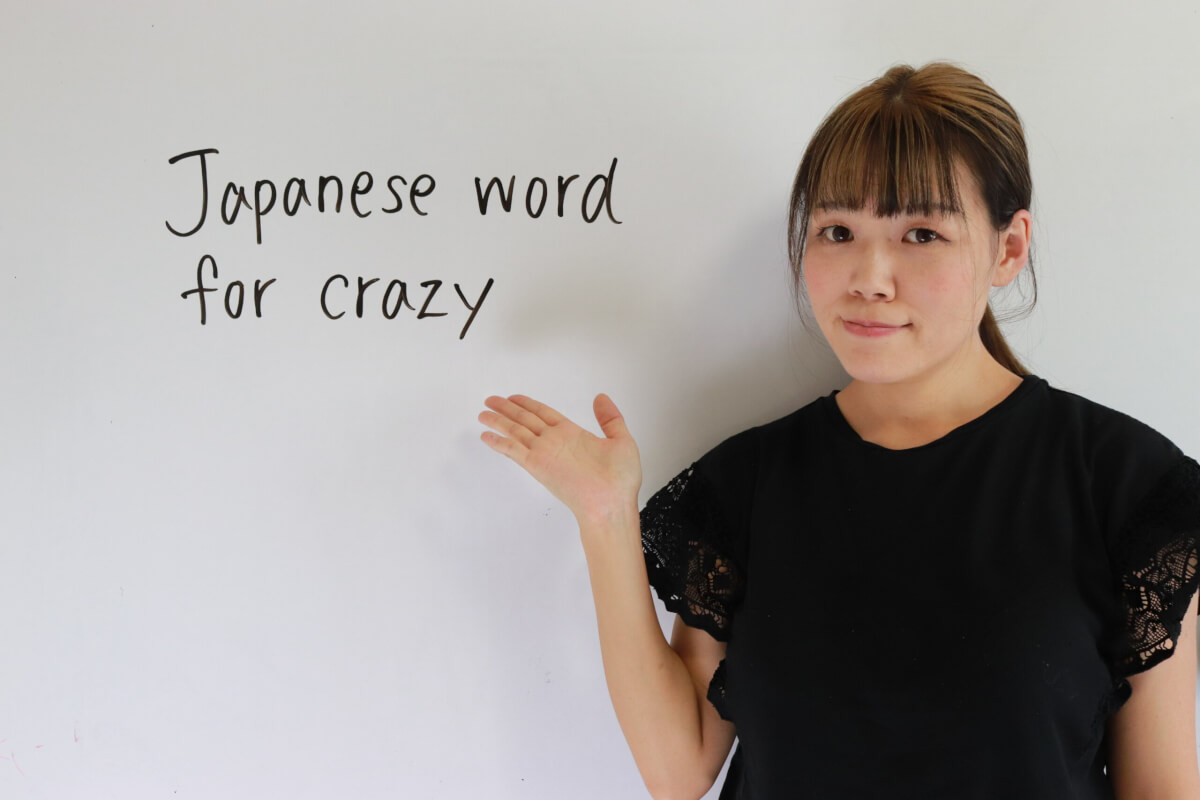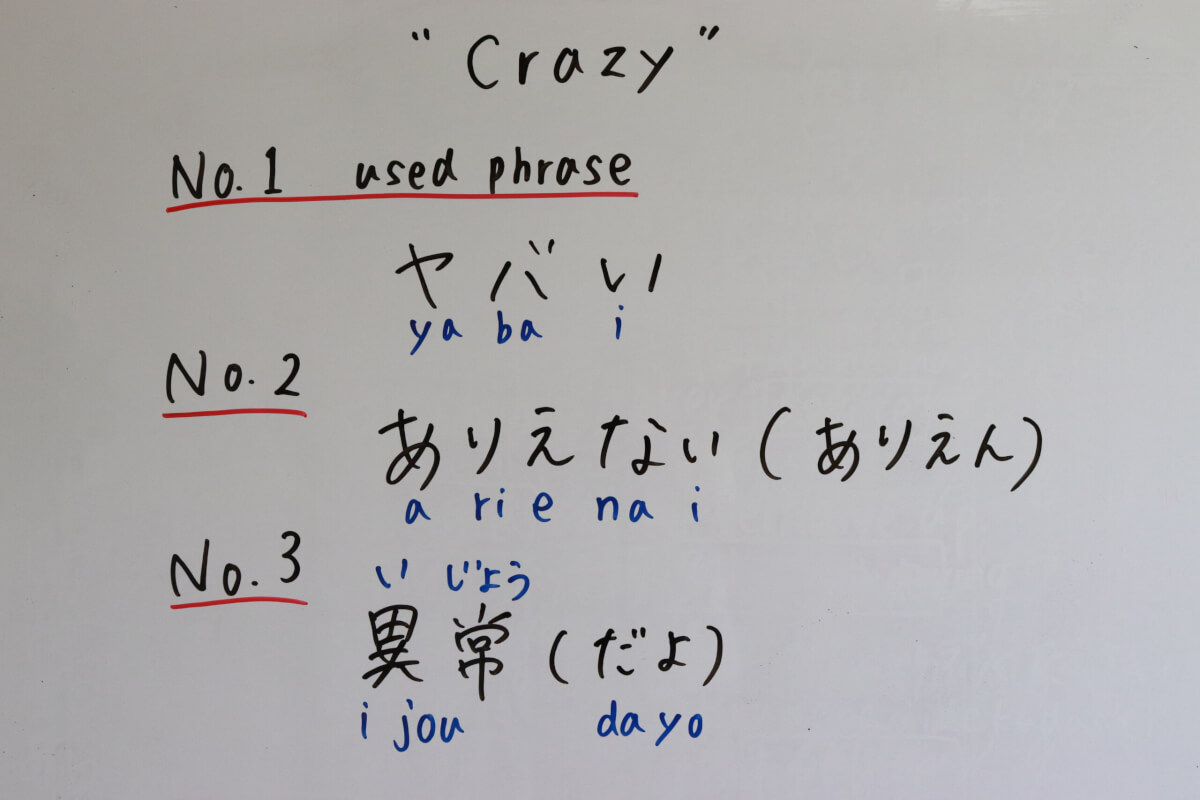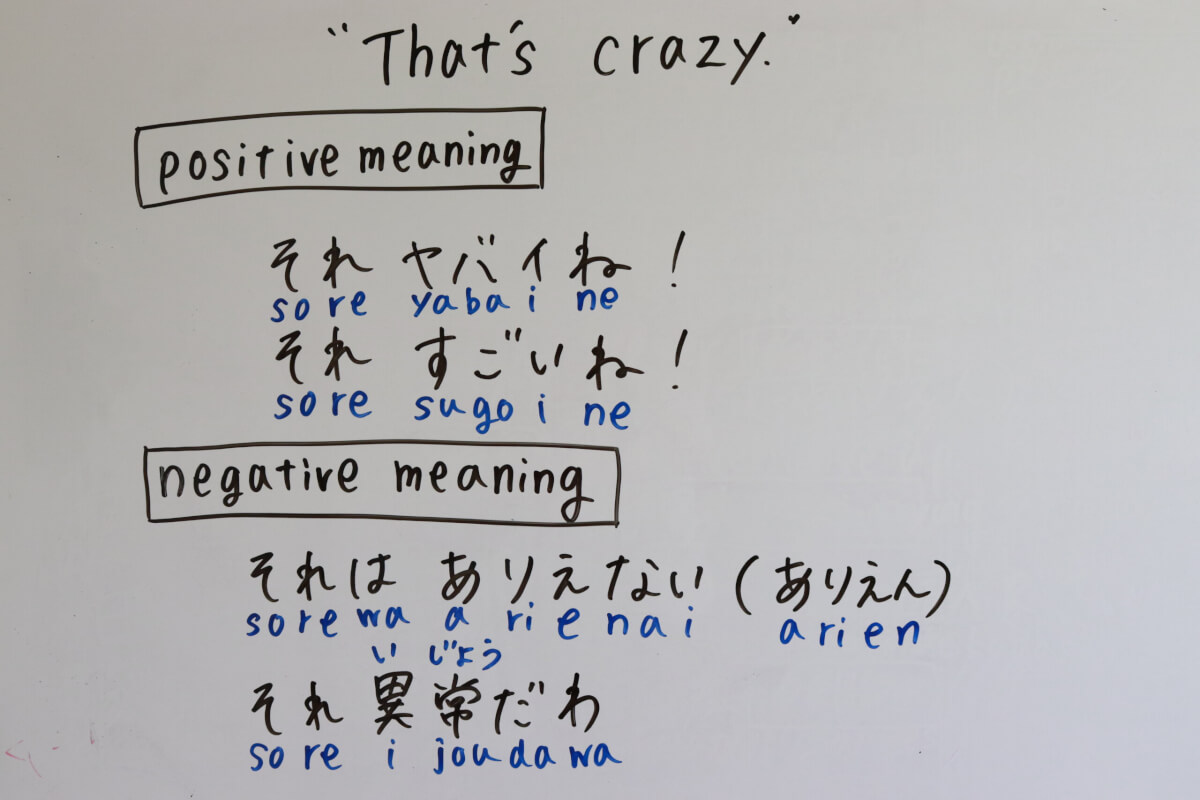- Release Date:
Japanese word for crazy

Let's study how to say Crazy in Japanese. It is a common word in English, but it is also commonly used in Japanese, and there are several ways to say it. Here is a list of expressions commonly used by native speakers.
How to say crazy in Japanese
Here are some ways native Japanese speakers say crazy.

| phrase | negative or positive | description |
|---|---|---|
| やばい /yabai/ | negative positive | This is the most used term. Japanese people use “やばい /yabai/” for anything out of the ordinary, whether it is a good or bad situation. It is the most used phrase and often used by young people. |
| ありえない /arienai/ ありえん /arien/ ありえん is more casual than ありえない | negative positive(sometimes) | "ありえない /arienai/" and "ありえん /arien" is the dictionary meaning of the word “improbable. Therefore, when something unexpected happens, Japanese people often say so. |
| 異常/異常だよ /ijou, ijou dayo/ | negative | "異常(だよ) /ijou dayo/" literally means "not normal” or "out of the ordinary". It is often used for something unexpected. |
| すごい /sugoi/ | negative(sometimes) positive | "すごい /sugoi/" is also often used in positive and also sometimes in negative situations. This is also often used in the same way as “やばい /yabai/”. |
| どうかしてる /douka shiteru/ | negative | The word "どうかしてる/douka shiteru/” has a nuanced meaning of “I don't understand. Therefore, it is often used in a bad way. |
| 頭おかしい /atama okashii/ | negative | The word “頭おかしい /atama okashii/” has a nuanced meaning of “I don't understand. Therefore, it is often used in a bad way. |
Not used × 狂ってる × 狂気じみてる
The dictionary lists "狂ってる /kurutteru/" "狂気じみてる /kyouki jimiteru/" but in fact Japanese people do not use them much in conversation. They are occasionally used in novels and manga. But nowadays, words like “やばい /yabai/” and “すごい /sugoi/” are often used.
Crazy in sentences in Japanese
How about these phrases in English? I translated these into natural Japanese.
X(someone) is crazy.
It is translated as"X、やばいね /yabai ne/" "X、まじでおかしいね /majide okashii ne/", "X、頭おかしいね /atama okashii ne/" etc. You can use any of the translations above, such as If you say the name in front of it, you can use it as a phrase.
That's crazy.

In positive way: "それヤバイね /sore yabai ne/" "それすごいね /sore sugoi ne/".
In negative way: "それはありえない /sore wa arienai/" or "それはありえん /sore wa arien/", "それ異常だわ /sore ijou dawa/"."それ /sore/" and "それは /sorewa/" mean "that's", and "ne" and "wa" is used about the end of a word to soften a sentence.
Are you crazy?
It is "本気(で)? /honki de/", "マジ(で)? /maji de/" or "正気?/shouki/". で/de/ is optional, you can omit で in very casual situations. マジ(で) is the most used among young people.
Crazy about X
It is "Xに夢中 /ni muchuu/" or "Xが大好き /ga daisuki/". "Xが大好き /ga daisuki/" is used mostly. "Xに夢中 /ni muchuu/" is a written phrase.
Like crazy
"めちゃめちゃ/mecha mecha/ (めちゃくちゃ /mecha kucha/)", "すごく /sugoku/", "かなり /kanari/". All of the phrases are often used in casual and slightly more polite situations. Which one to use is like a person's favorite line, not that it has to be this one.
